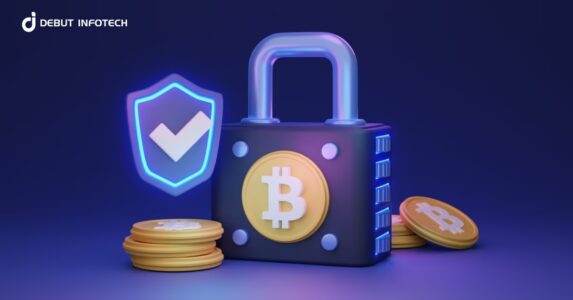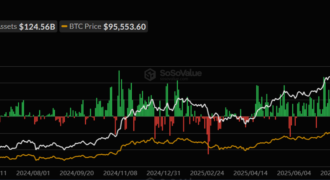In a digital landscape where decentralization promises freedom, transparency, and self-custody, one truth remains constant — security is everything. Bitcoin may have revolutionized finance, but it also redefined personal responsibility. Without banks, intermediaries, or customer support hotlines, the security of your Bitcoin depends on you. As the world embraces self-sovereign money, understanding how to protect your digital wealth has never been more crucial.
The Decentralization Dilemma: Freedom Comes with Responsibility
Bitcoin’s decentralized nature is both its strength and its greatest challenge. Unlike traditional finance, where banks hold and secure your money, Bitcoin’s model gives users complete control — and therefore, complete risk.
When you hold Bitcoin, you hold the keys — literally. Your private key is your proof of ownership, and losing it means losing access to your funds forever. Similarly, if someone else gains access to that key, they effectively own your Bitcoin.
This model puts security at the forefront of digital finance. It’s a shift from “trusting institutions” to “trusting yourself.” And for many, that requires a new mindset — one where digital literacy, not just financial savvy, determines wealth protection.
Hot Wallets vs. Cold Wallets: Understanding the Basics
At the core of Bitcoin security lies one fundamental decision — where to store your coins.
- Hot wallets are connected to the internet — they’re convenient, fast, and perfect for everyday transactions. Examples include mobile wallets and browser-based extensions. However, their online connectivity makes them more vulnerable to hacking attempts, malware, and phishing attacks.
- Cold wallets, on the other hand, are offline storage solutions such as hardware wallets or even paper wallets. Since they’re disconnected from the internet, they are almost immune to remote attacks. The trade-off? Less convenience, as transactions require manual connection and approval.
A balanced approach, often called the “hybrid model,” uses both. Traders keep small amounts in hot wallets for quick access, while long-term investors store the bulk of their holdings in cold storage — safe, offline, and untouchable.
Private Keys: The Golden Ticket of Bitcoin Ownership
If Bitcoin is digital gold, then your private key is the key to the vault. It’s a cryptographic code that proves your ownership of Bitcoin stored on the blockchain. Whoever controls that key controls the coins.
This means writing it down, backing it up, and never sharing it. Many experienced users employ seed phrases — a set of 12 or 24 words generated by your wallet that can restore access to your funds.
But one common mistake people make is storing this seed phrase digitally — in a note app, cloud drive, or email. These are prime targets for hackers. Instead, write it on paper, store it in a secure location, or use a metal backup that can survive fire, water, or time.
Your private key is sacred — guard it like your financial life depends on it — because in the world of Bitcoin, it actually does.
The Human Element: Social Engineering and Scams
While advanced cryptography protects Bitcoin at a protocol level, humans remain the weakest link. Phishing attacks, fake exchanges, and impersonation scams have claimed millions in lost Bitcoin over the years.
For example, malicious actors often pose as wallet providers or support staff, tricking users into revealing seed phrases. Others create fake websites or apps that mimic legitimate crypto services.
To stay safe:
- Always double-check URLs and official sources.
- Never click links from unsolicited emails or messages.
- Avoid “too good to be true” investment schemes promising guaranteed returns.
Remember: Bitcoin doesn’t require trust, but it does demand vigilance.
Multi-Signature Wallets: Shared Control, Enhanced Safety
For users holding large amounts of Bitcoin, multi-signature (multisig) wallets offer an extra layer of protection. These wallets require multiple private keys to authorize a transaction.
For example, a 2-of-3 multisig setup means that out of three possible keys, at least two must sign to move funds. This setup makes it significantly harder for a single compromised device or person to cause total loss.
Businesses, custodians, and even individual investors are increasingly adopting multisig as a best practice for enhanced Bitcoin security — combining decentralization with a structured form of protection.
Hardware Wallets: The Ultimate Security Tool
Among the many tools available, hardware wallets remain the gold standard for serious Bitcoin holders. Brands like Ledger, Trezor, and Coldcard are trusted across the crypto community for good reason — they isolate your private keys inside a secure, offline device.
Even if your computer or phone is infected with malware, your hardware wallet ensures the private key never leaves the device. Each transaction must be confirmed manually on the wallet screen, making unauthorized access nearly impossible.
While they come at a cost, the protection they provide against online theft is invaluable — a small price for peace of mind in a decentralized world.
Regaining Access: The Myth of Recovery
One of the biggest misconceptions among newcomers is the belief that lost Bitcoin can be recovered through support or blockchain administrators. There is no central authority in Bitcoin. If you lose your private key, the coins remain forever locked — visible on the blockchain, but inaccessible to anyone.
This harsh reality reinforces the importance of backups and redundancy. Many users employ strategies like splitting their seed phrase across secure locations or using encrypted physical storage devices. Others opt for Shamir’s Secret Sharing, a cryptographic method to divide a secret (like a seed phrase) into parts that only reconstruct when combined.
Bitcoin Security in the Age of Quantum Computing
As technology evolves, so do threats. Quantum computing — though still in its infancy — poses potential risks to cryptographic systems like Bitcoin’s SHA-256 algorithm.
While experts agree that such risks are not imminent, researchers and developers within the Bitcoin community are already exploring quantum-resistant algorithms to future-proof the network.
In other words, while Bitcoin isn’t unbreakable, it is constantly evolving — fortified by one of the most active and vigilant open-source communities in tech history.
The Bottom Line: Decentralization Demands Discipline
In traditional banking, you trust institutions to protect your assets. In Bitcoin, you are the institution.
That’s both empowering and demanding. Self-custody gives you total control, but it also means no safety nets. Every choice — from wallet type to backup method — directly impacts your financial safety.
In this new decentralized paradigm, security isn’t just a feature — it’s a philosophy. Bitcoin rewards those who take responsibility, learn the tools, and safeguard their sovereignty.
So, as you build your digital wealth in this decentralized world, remember:
“Not your keys, not your coins.”
Keep your Bitcoin safe, because in the age of financial freedom, your security is your sovereignty.



